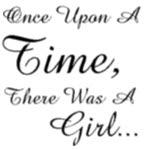There are many different types of genres in the literary world, and each of theses genres bring its own unique characteristics to abide by. We have the mysteries, romance, drama, fiction and even creative non-fiction. All of these genres bring something different to “the table” making it easy to distinguish between the styles.
Although creative-nonfiction is a genre of writing it is kind of hard to define. I took it as a type of writing that uses facts and real occurrences, but tells it in a different way. It brings a sort of “storyline” to the real facts. In Bruce Dobler’s Creative Non-Fiction Compendium he describes it as "literary journalism" or "literature of fact”. He defines it as a branch of writing which employs literary techniques and artistic vision usually associated with fiction or poetry to report on actual persons and events. I also found a different definition (Barrie Jean Borich) that states it is a writing that can embody both personal and public history. It is a form that utilizes memory, experience, observation, opinion, and all kinds of research. Sometimes the form can do all of the above at the same time. Other times it is more selective and it can include the author’s perspective.
Over this semester we have read two examples of Creative Non-fiction, which was “All Around the Town” and The Curve of Binding Energy”. In these stories the authors use real facts and added interesting twists to make the facts grow into a story and make it come alive.
Lee Gutkind, the author of several books of creative nonfiction and the founder/editor of the journal Creative Nonfiction, mentioned in Bruce Dobler’s Creative Non-fiction Compendium that this genre strives to communicate real-life stories dramatically. He also mentions that “The most important quality that a creative nonfiction writer can have, is passion: ‘A passion for the written word; a passion for the search and discovery of knowledge; and a passion for ... understanding intimately how things in this world work.”’ I feel that passion makes anything better. If you have passion for what you are writing about, then people will want to read it and would be able to experience what you are feeling in your words. Having this type of passion in our writings as students is important, especially when using this genre, because we are able to use what we are taught and add our own imagination to it.
Subscribe to:
Post Comments (Atom)





No comments:
Post a Comment